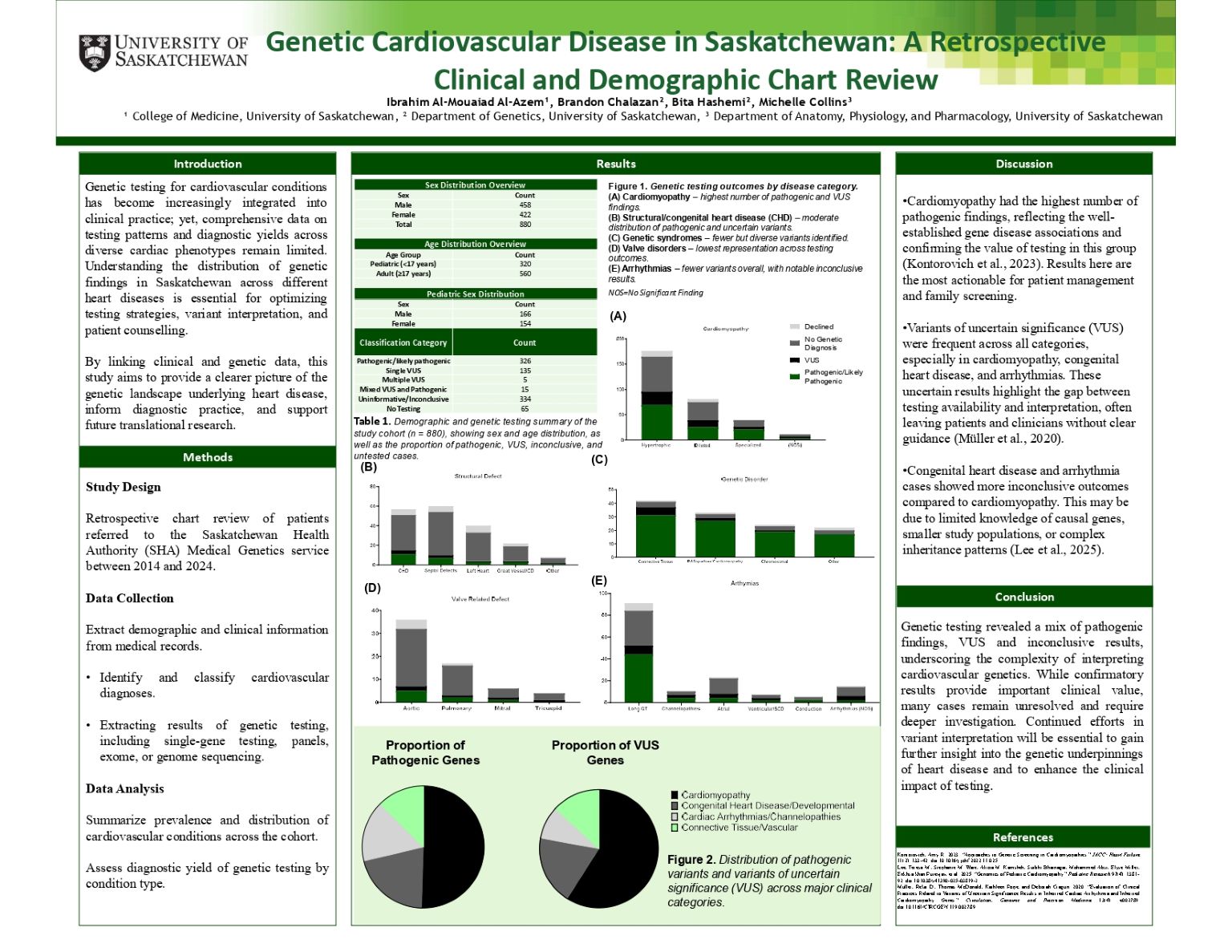
Genetic Cardiovascular Disease in Saskatchewan: A Retrospective Clinical and Demographic Chart Review
Ibrahim Al-Mouaiad Al-Azem
Genetic testing is increasingly used in cardiovascular care, yet data on testing patterns and diagnostic yields across cardiac phenotypes remain limited. Evaluating genetic findings in Saskatchewan is vital for optimizing testing strategies, improving variant interpretation, and guiding patient counselling.
We performed a retrospective chart review of patients referred to the Saskatchewan Health Authority (SHA) Medical Genetics service between 2014-2024. Where we identified patients that were referred to due to a cardiovascular diagnosis. At which point retrieved relevant information such as the cardiac diagnosis and genetic testing results. From there we were able to analyze the prevalence and distribution of cardiovascular conditions across the cohort.
In total, we reviewed and collected data from 880 patients, including 560 adults and 320 pediatric cases (<17 years) with near-equal sex distribution (458 males, 422 females). Among these, 326 patients carried pathogenic/likely pathogenic variants, while 155 had one or more variant of unknown significance (VUS), and 334 received uninformative results. Cardiomyopathy yielded the most pathogenic findings with clear clinical utility, while congenital heart disease and arrhythmias showed frequent VUS and inconclusive results.
Genetic testing revealed a mix of pathogenic findings, VUS and inconclusive results, underscoring the complexity of interpreting cardiovascular genetics.
